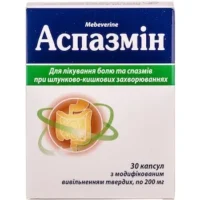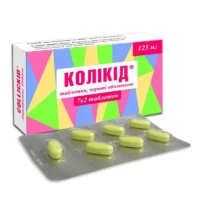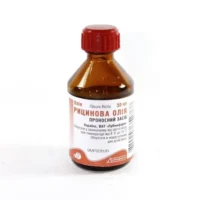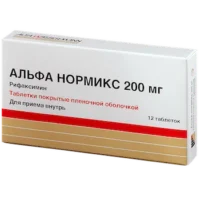Description
Rabidjem 20 (Rabeprazole Sodium) Coated Tablets 20 mg. №10
Ingredients
- Each coated tablet contains 20 mg of Rabeprazole Sodium.
Dosage
- The recommended dosage is one 20 mg tablet daily before a meal.
Indications
- Rabidjem 20 tablets are indicated for the treatment of gastroesophageal reflux disease (GERD), duodenal ulcers, and Helicobacter pylori eradication.
Contraindications
- Do not use Rabidjem 20 if you are allergic to rabeprazole sodium or any other ingredients in the formulation.
Directions
- Swallow the tablet whole with water. Do not crush or chew the tablet.
Scientific Evidence
Rabeprazole sodium, the active ingredient in Rabidjem 20, belongs to the class of proton pump inhibitors (PPIs). PPIs work by irreversibly inhibiting the H+/K+ ATPase enzyme system in the gastric parietal cells, leading to a reduction in gastric acid secretion. Clinical studies have shown that rabeprazole is effective in the treatment of various acid-related disorders, including GERD and peptic ulcers.
Additional Information
Rabidjem 20 is well-tolerated by most patients; however, common side effects may include headache, nausea, and abdominal pain. It is important to follow the prescribed dosage and not exceed the recommended duration of treatment without consulting a healthcare provider.
Pharmacological Effects and Clinical Trials
- Rabeprazole sodium exerts its pharmacological action by inhibiting the final step of gastric acid production. This results in a significant decrease in gastric acidity, providing relief from symptoms associated with acid-related disorders.
- Clinical trials have demonstrated the efficacy of rabeprazole in healing and symptom relief in patients with GERD and peptic ulcers.
- Comparative studies have shown that rabeprazole may have a faster onset of action and a longer duration of acid suppression compared to some other PPIs, making it a preferred choice for certain patients.





